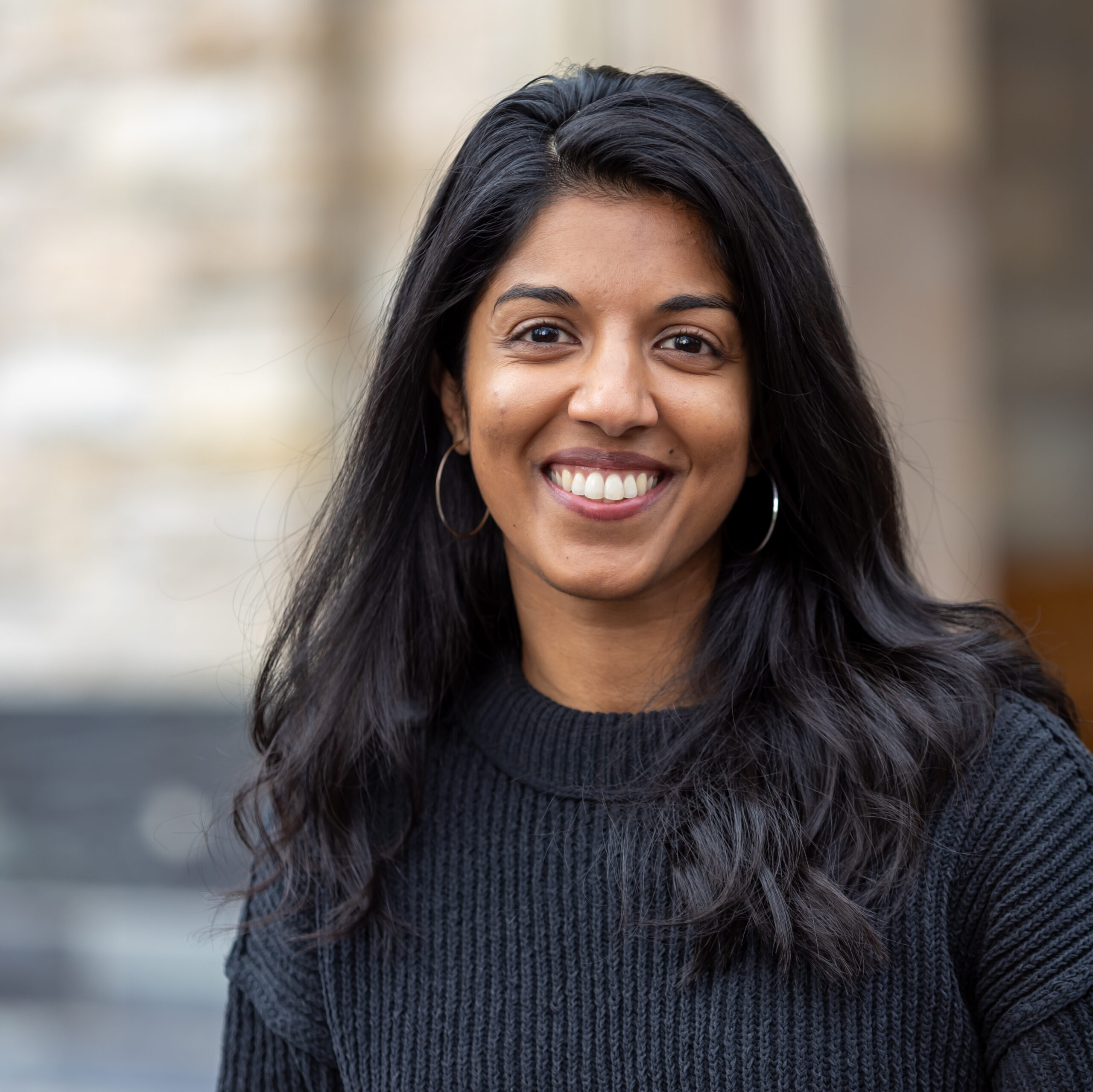Leading Innovative Ministry Through Field Education
February 6, 2024 | Featured, Field Education, Public, Students

Annah Kuriakose graduated from a renowned liberal arts college in the Northeast on track to become a physician. Then, she spent two years teaching in the Mississippi Delta—an experience that inspired her to think more deeply about public health and education. She went on to medical school, non-profit work, and ultimately, the Masters in Theological Studies (MTS) program at Princeton Theological Seminary.
She arrived as a first-year student in 2022, ready to explore the faith that fueled her commitment to serve in high-needs, under-resourced communities.
“Faith was my foundation,” said Kuriakose. “But I wanted to take the time to deepen my understanding of God, to think about these issues theologically.”
She gained that deeper understanding through courses like “Ten Commandments and Community,” taught by Dennis T. Olson, the Charles T. Haley Professor of Old Testament Theology.
In one lesson, Kuriakose, who served as a student mentor for the class, focused on the commandment “Thou Shall Not Kill,” providing a commentary on deep disparities in contemporary society and a theological reflection on her chosen path.
“To me, it’s not just, ‘do not murder,’” she said. “It’s, ‘do not pay tribute to systems of death.’ It’s, ‘do not impede the flourishing of another person,’ which means working to improve systems like education and health care.”
For Kuriakose, helping others flourish wasn’t just an aspiration. It was very much a part of her Seminary studies. Her fieldwork was with students at a high school in Newark, N.J., teaching life skills and physical and mental health literacy from a curriculum she developed as part of a class with Kenda Creasy Dean, the Mary D. Synnott Professor of Youth, Church, and Culture.
“It’s all about, ‘What needs does the world have? How do we serve those needs beyond the walls of the church?” Kuriakose said.
A daughter of first-generation immigrants from India, Kuriakose grew up in suburban, northern New Jersey and worshipped at a congregation affiliated with the Indian Orthodox Church.
She went to Amherst College, majoring in anthropology while loading up on math and science courses in anticipation of medical school.
Immediately after graduating from college in 2009, she committed to two years of teaching high school through the Mississippi Teacher Corps. She arrived in the community of Hollandale with an abundance of idealism and energy, but soon found herself overwhelmed and ill-equipped to teach amid pervasive poverty.
“I see the health and education components in my work as critical to human potential, to the development of the whole person,”
“The first year was one of the hardest years of my life because I was learning how much I did not know,” she said. “Here I am coming from this elite liberal arts school where I had done relatively well. But none of that matters when you’re struggling to teach basic math to high school students.”
After completing her two years, she returned to the Northeast, enrolling in New York Medical College. But Mississippi remained on her mind. And so did big questions about disparities in wealth, healthcare, and education.
“It really made me think about who we’re supposed to serve, who we need to access, who we need to get to for all of our communities to rise,” she said.
At medical school, Kuriakose followed her muse by spending her clinical rotations in schools, children’s hospitals, and child development centers. But, in the end, after completing her medical degree, she decided against pursuing a residency.
“I left medicine right when the cash flow switched directions,” she joked. “Residency is when you actually start getting paid.”
She returned to teaching, this time in Newark, N.J., and later served as program director for a non-profit focused on chronic disease and disability care for patients in the South Asian community.
Then, as the COVID-19 pandemic set in, Kuriakose began thinking about seminary, which led to field education.
She is what some describe as a new type of seminarian—guided by faith but seeking roles beyond the pulpit. At Princeton Seminary, Kuriakose honed her thoughtful approach to social justice, emphasizing issues of public health and education, with a focus on teens and young adults by creating “More Than Core”. She named the program “More Than Core” because it goes beyond typical school curricula to help students develop dignity, purpose, and well-being.
She continues her work with students through the Newark Beth Israel Medical Center’s School-Based Youth Services Program, which provides a range of services to Newark, N.J. schools. For Kuriakose, “the curriculum is essentially a way for students to explore identity and embodiment. I wanted to really think about how we bring ministry to locations outside of the church, outside of the academy.”
“It’s thinking about ways to be well,” she said of the curriculum. “What things do you need to know, what savvy do you need to develop to be well in the world and to do well in the world?”
For Kuriakose, her work is very much an act of ministry.
“I see the health and education components in my work as critical to human potential, to the development of the whole person,” she said. “I think of it all as people work. I think of it all as life work. The way that I have thought about Seminary training… is as a tool, a lens through which I create and build for the wider world.”
Shannon Smythe, director of field education, adds “with the landscape of congregations and communities and religion shifting and changing dramatically, what theological field education provides to students is a space for them to innovate new ways of doing ministry, and being a ministry leader.”
Kuriakose recently updated Princeton Seminary on her latest work and how the Field Education Program prepares students for ministry. Watch below to learn more.





